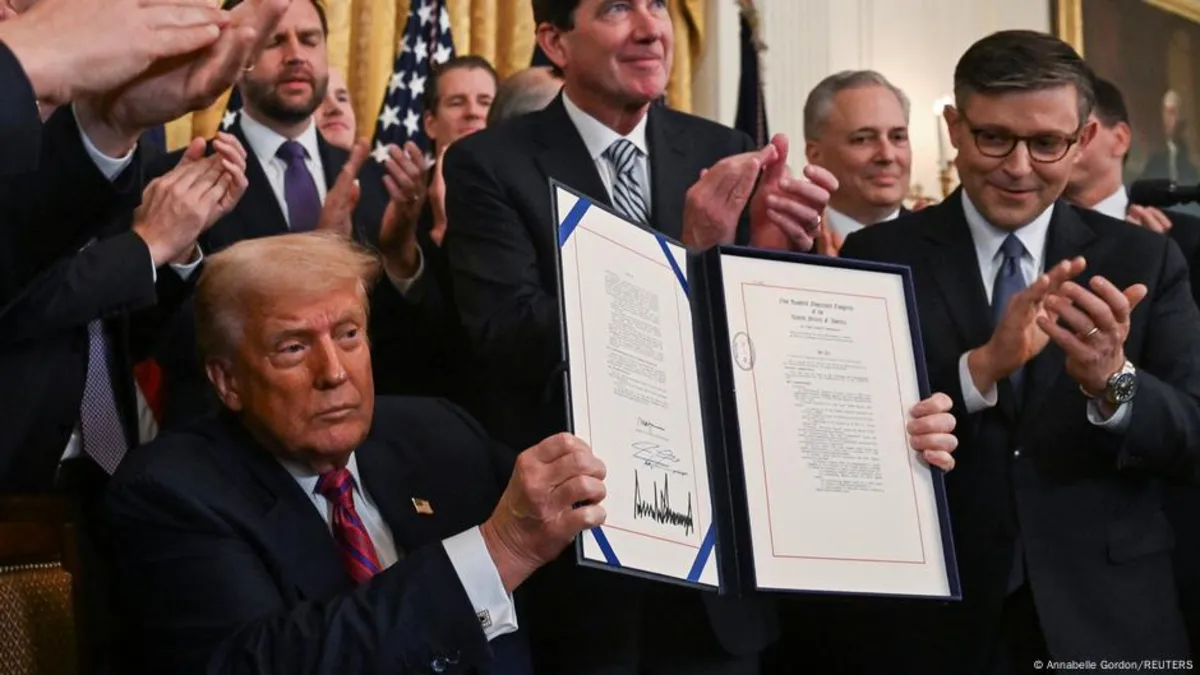
In a significant move for the cryptocurrency space, US President Donald Trump has signed into law the GENIUS Act (Guiding and Establishing National Innovation for US Stablecoins). This legislation aims to create a comprehensive regulatory framework for stablecoins, potentially facilitating the everyday use of US-dollar-based cryptocurrencies for transactions and transfers.
The GENIUS Act received robust support in Congress, passing the House of Representatives with a decisive vote of 308 to 122 after earlier approval in the Senate. During the bill-signing ceremony at the White House, Trump expressed his enthusiasm, stating, "The GENIUS Act, they named it after me. It's good for the dollar and it's good for the country." He acknowledged his early support for the crypto industry, hinting at its electoral significance, saying, "And I also did it for the votes."
This new law marks a substantial victory for the crypto industry and its advocates, who have long sought such legislation to legitimize the use of cryptocurrencies. By establishing a regulatory framework, the GENIUS Act aims to encourage banks, retailers, and consumers to adopt stablecoins more readily. In fact, the industry has invested heavily in political campaigns, donating over $245 million (€210 million) in the previous year's elections to support pro-crypto candidates like Trump.
Stablecoins are unique forms of cryptocurrency designed to maintain a consistent value, typically pegged at a 1:1 ratio with the US dollar. The GENIUS Act mandates that these digital assets be backed by liquid assets, ensuring their stability. According to data from CoinGecko, the market for stablecoins is currently valued at more than $260 billion (€223 billion). With the new legislation in place, Standard Chartered bank estimates that this market could expand to a remarkable $2 trillion by 2028.
As Treasury Secretary Scott Bessent noted, this groundbreaking technology is poised to reinforce the dollar’s standing as the global reserve currency. It is expected to broaden access to the dollar-based economy for billions worldwide and significantly increase demand for US Treasuries that underpin stablecoins.
Despite the enthusiasm surrounding the GENIUS Act, critics have raised concerns regarding the legislation. They argue that it should have incorporated stronger anti-money laundering protections and restrictions on foreign stablecoin issuers. Some fear that by neglecting to address known loopholes, Congress may inadvertently transform the US financial system into a safe haven for criminals and foreign adversaries. Scott Greytak, deputy executive director of Transparency International US, voiced these concerns, stating, "By failing to close known loopholes and protect America’s digital dollar infrastructure, Congress has risked making the US financial system a global haven for criminals."
It's noteworthy that Trump is not new to the cryptocurrency scene. Earlier this year, he signed an executive order to establish a strategic bitcoin reserve. Additionally, he holds a stake in the crypto company World Liberty Financial and has launched a meme coin called $TRUMP in January.
In conclusion, the signing of the GENIUS Act represents a pivotal moment in the evolution of stablecoins and the broader cryptocurrency landscape in the United States. As the industry continues to grow, it will be essential to balance innovation with regulatory oversight to ensure a secure financial environment for all.